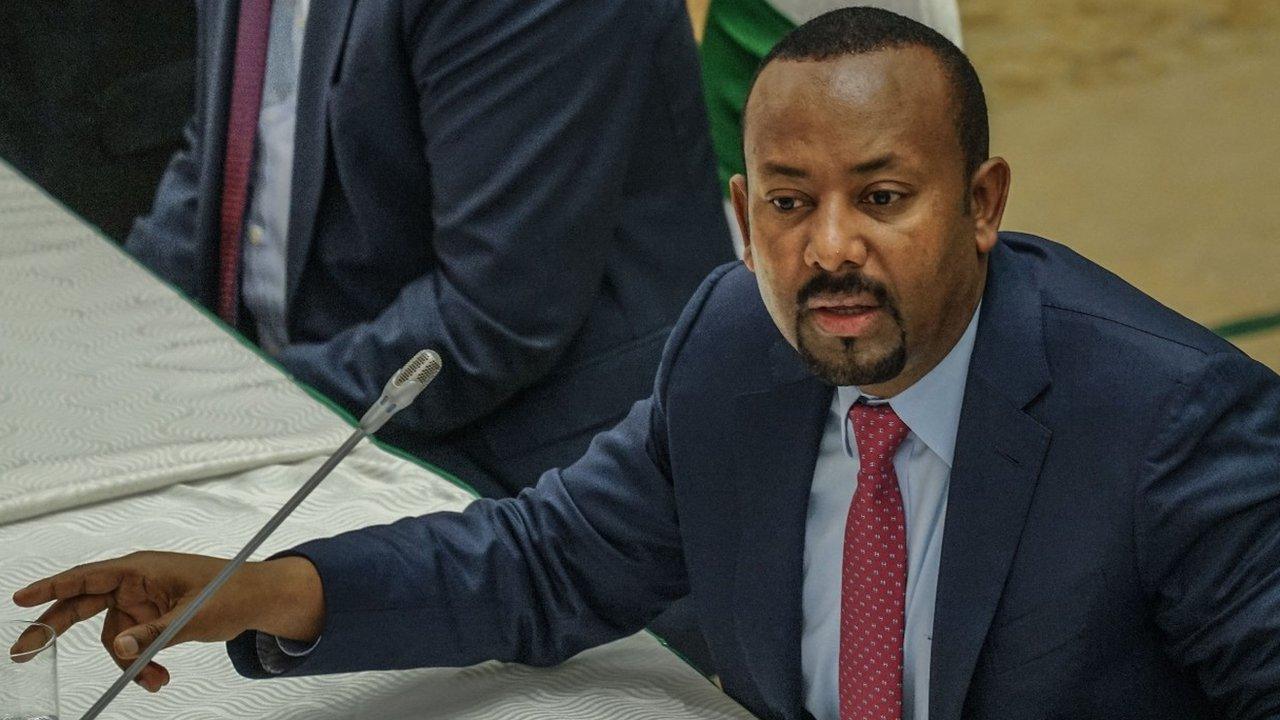Why Ethiopia’s 'alphabet generation' feel betrayed by Abiy
- Published
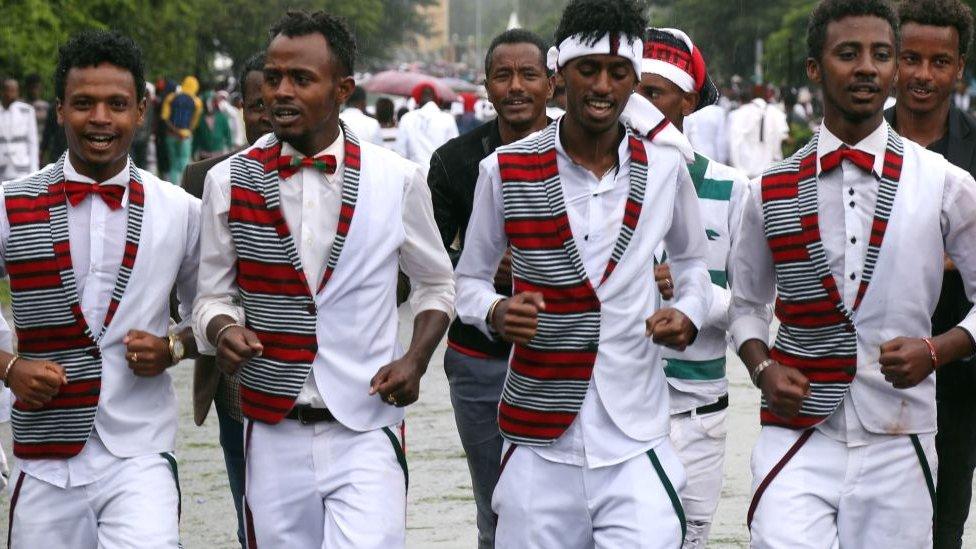
When Abiy Ahmed became prime minister of Ethiopia three years ago, the Oromo community felt their shackles had finally been broken.
He was one of them - he understood the anger of the country's largest ethnic group who had led mass demonstrations leading to his predecessor's resignation.
He knew what their crossed arms - the shackle symbol made famous at the Rio Olympics when marathon runner Feyisa Lilesa raised his arms at the finish line - really meant.
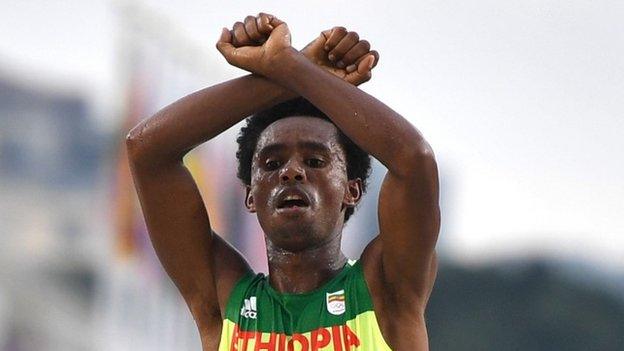
Feyisa Lilesa made crossed hand shackle sign famous at the Olympics in 2016
"Many people saw [Abiy] as a new Messiah," says Merera Gudina, chairman of the opposition Oromo Federalist Congress (OFC).
For Oromos have felt like second-class citizens in their own country - once referred to even in official circles by a derogatory slur known as the G-word, the equivalent of the N-word, and made to feel ashamed of their cultural identity.
Most Oromos live in the Oromia region, as the country is divided into ethnically based states. Yet in Addis Ababa, Ethiopia's capital, which is completely surrounded by Oromia, some Oromos say it was frowned upon for them to speak Afaan Oromoo in public, even on a bus.
This frustration found a voice in the "qubee" generation, which means "alphabet" in Afaan Oromoo - a reference to those who were taught in their mother tongue for the first time, a policy introduced to schools nationwide in the early 1990s after the fall of the Marxist regime.
"Qubee" also makes a political statement, pointing to a decision for the Afaan Oromoo language to adopt the Latin alphabet, distancing itself from the Ge'ez script used in Amharic - the working language of the country.
And with more education, came a political awakening.
"As more educated Oromos started comparing their history with other histories like that of South Africa, they realised that the inferior position assigned to them by the system was unbearable," says Faisal Roble from the US-based Institute for Horn of Africa Studies and Affairs.
'Brutality exaggerated'
They learnt how modern-day Ethiopia was formed under Emperor Menelik II through conquest - and how their land was lost.
But not all Ethiopians see it the same way.
Menychle Meseret, an academic at Ethiopia's University of Gondar, says many of the claims about Menelik's brutality are baseless and exaggerated for political gain.
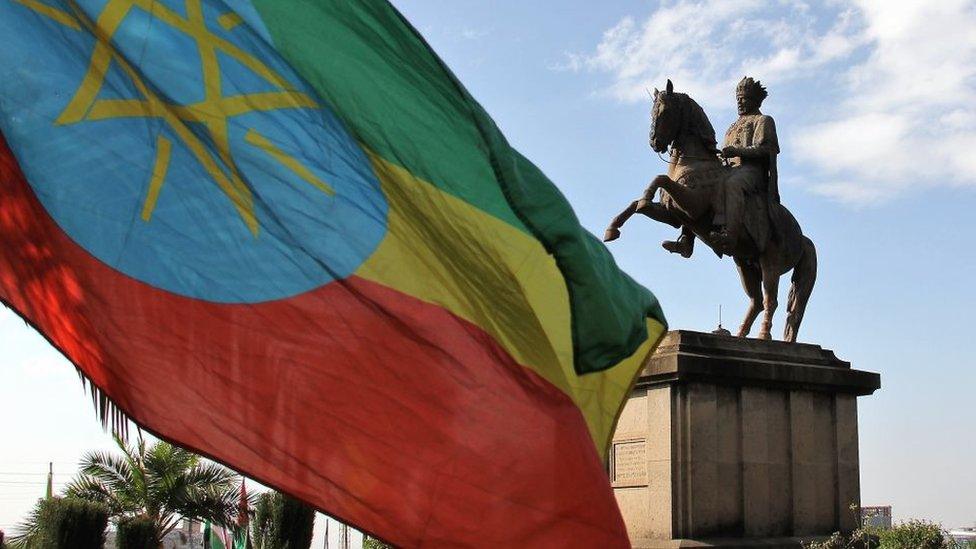
Emperor Menelik II fought off Italian invaders, but has a mixed legacy in Ethiopia
"Much of Ethiopia's history is not written by trained historians, it's written by politicians - the allegation that five million Oromos were killed by Menelik for example," he says.
"When you check such numbers there wouldn't even have been five million people in the whole of Ethiopia at that time."
Yet Oromos did feel economically and culturally subjugated, which Mr Faisal puts down to the royal elite regarding them as "uncivilised", a view which continued during Emperor Haile Selaisse's four-decade rule, until his overthrow in 1974.
"One of the tenets of the era of Haile Selaisse was to Amharise the Oromos... so that's why you will see a huge urbanised Oromo lost to their traditional names and culture and who assumed the Amharic language and Amharic names," he says.
It is the alphabet generation who have bucked against this and embraced their cultural identity - they want their language to be recognised as one of the country's working languages, they want to feel at ease in Addis Ababa, which they call Finfinnee, and have more of a say in its administration and growth, they want more autonomy over Oromia and they want jobs.
This new-found confidence was encapsulated by Hachalu Hundessa, a former political prisoner turned music star whose lyrics fuelled the Oromo protests.
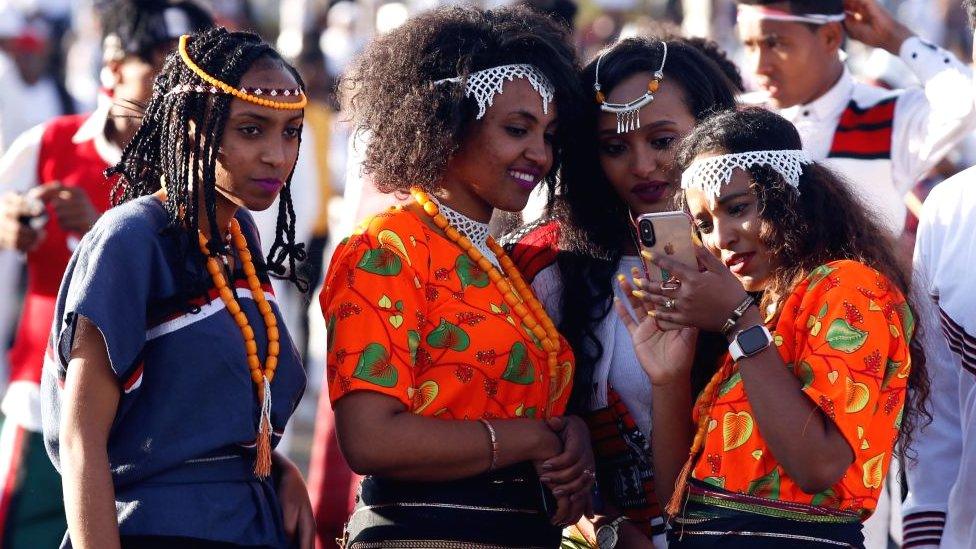
Oromo cultural pride is now being expressed in fashion
Amid the euphoria that greeted Mr Abiy as Ethiopia's first Oromo prime minister, things did change.
Oromo fashion shows were held in Addis Ababa, the Oromo's Irreecha thanksgiving festival took place in the capital for the first time in a century, investment came to the region, political prisoners were released, and opposition figures, including the hugely popular Oromo media mogul Jawar Mohammed, were welcomed back from exile.
Hero killed
There was a little unease about some of Mr Abiy's other political reforms, but last year things deteriorated fast when Hachalu, who had said he was getting death threats, was killed - the motive is still unclear.
For the alphabet generation, their hero was dead - it led to a wave of ethnic unrest, leaving more than 160 people dead and the arrest of opposition figures like Mr Jawar, who now faces charges of terrorism and incitement to violence.
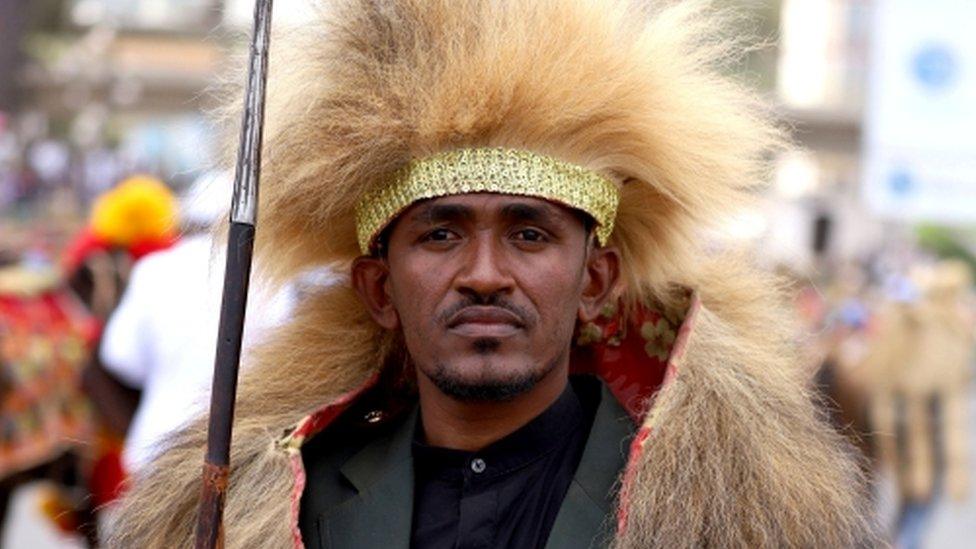
Hachalu Hundessa, seen here in traditional Oromo costume, had become increasingly politicised whilst in prison
Any democratic government would be left with no choice but to enforce the law when confronted with such scenes, says Mr Menychle.
Yet the repercussions have led Mr Jawar's OFC and the Oromo Liberation Front (OLF) to boycott next week's general election.
"The political space has been shrinking. For example last year we had 206 offices across Oromia and now we have only just three offices," says the OFC's Prof Merera.
Mr Abiy's Prosperity Party (PP) will have no real competition in Oromia. This is the party he formed after dissolving the Ethiopian Peoples' Revolutionary Democratic Front (EPRDF), a coalition of four ethnically based parties formed in 1988 to fight the Marxist regime.
It had been dominated for more than two decades by Tigrayans, who make up around 7% of the population - another factor in the Oromo protests that brought him to power.
'Togetherness'
Mr Abiy's idea was to have a more ethnically diverse party - the country has more than 80 ethnic groups - but with a unity of purpose to resolve ethnic differences which often boil over to violence.
This vision is in his book Medemer, published at the time of the PP's launch, an Amharic language term that can be translated as "coming together".

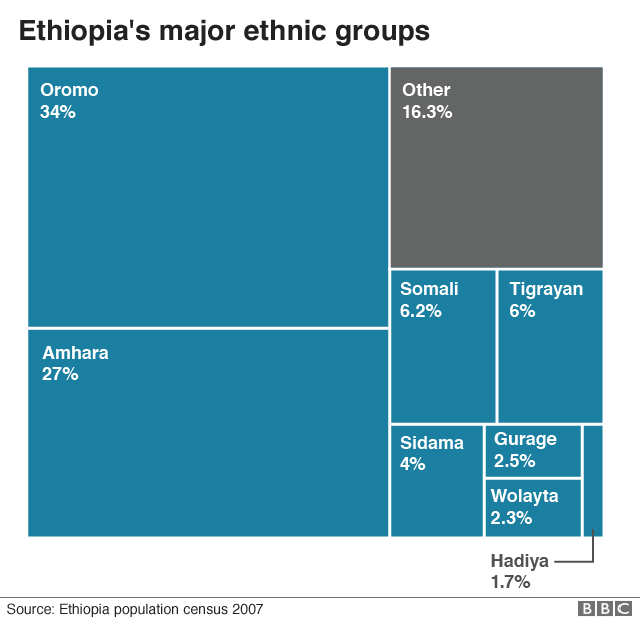
Oromos number around 40 million out of Ethiopia's population of 115 million.

"Calling for unity and togetherness is a good thing," says Mr Menychle, "because if you see Ethiopia today, ethnicity is stretched to the maximum, where people are dying, saying: 'You're not for one of us.'"
However, Mr Abiy has been Machiavellian in his determination to set up the PP, says Mr Faisal, ditching Oromo allies who disagreed with him like Lemma Megersa. Mr Lemma had nominated him for prime minister, but was sacked last year as defence minister for criticising the PP's creation.
Mr Faisal agrees that the PP has opened its doors to more groups, but says it could be a way to impose "autocratic rule" - something Oromo politicians who favour a more decentralised federal system fear.
"Clever city boys took him over," says Prof Merera, alluding to how he feels Mr Abiy turned his back on the promises to Oromia's youth and has been swept along by ethnic Amhara sympathies.
Mr Faisal puts it more bluntly: "Abiy realised that Amharas control the intellectual power, the media, the plutocracy… he came to realise that the only way he could control Ethiopia was by aligning to the Amhara ideology."
The same month as Medemer was launched, Menelik's renovated Imperial Palace in Addis Ababa was opened to the public for the first time, along with 15 acres of grounds called Unity Park. It had been lovingly renovated and inside was a life-size waxwork of Haile Selassie.
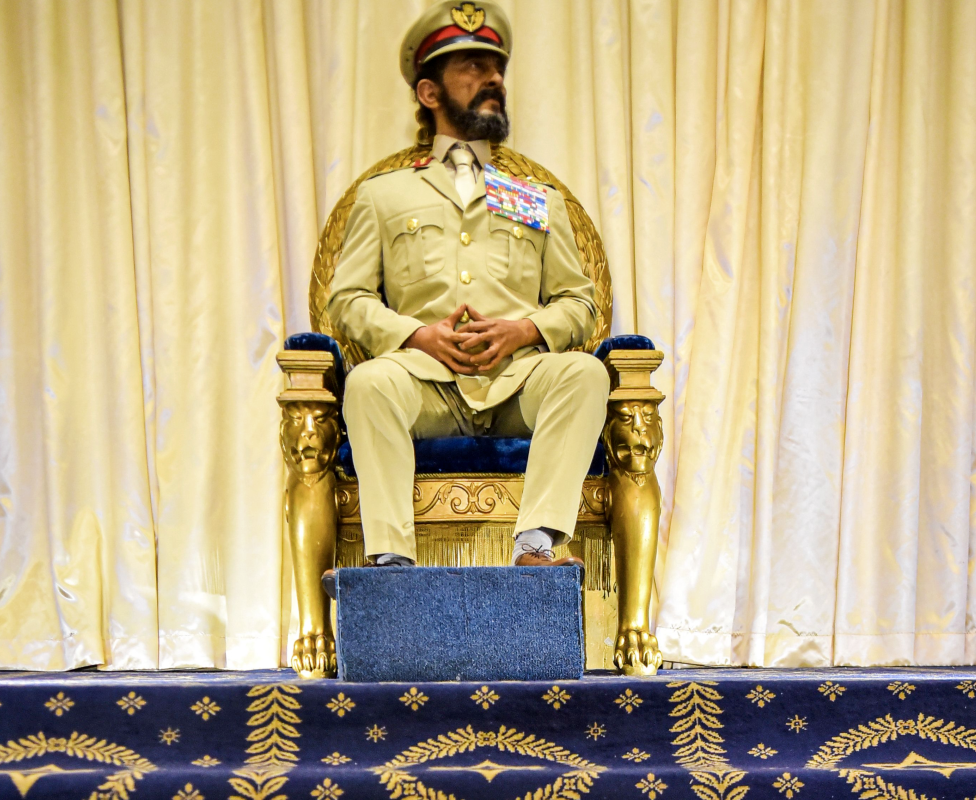
A waxwork of Haile Selassie on his throne can now be seen at the Imperial Palace
Mr Abiy took care to say it was all funded by donations - but Mr Menychle says it all fed into the rhetoric of opposition Oromo politicians wishing to make political gain.
The academic argues the prime minister has in no way let Oromos down when it comes to the PP or language.
"The government is also working on this language issue - if this is the demand for Afaan Oromoo to be a working language, it will not be a problem."

More on Ethiopia's election:

In fact he says Mr Abiy has been at pains to strengthen institutions, with the appointment of Birtukan Mideksa to head the electoral board and Daniel Bekele, once head of Human Rights Watch's Africa division, to lead reforms at the Ethiopian Human Rights Commission (EHRC) - both of whom had been jailed in the wake of the disputed 2005 parliamentary election.
The state-linked EHRC has been outspoken in its criticism of atrocities being carried in the Tigray region, where war erupted in November, and of abuses in Oromia - recently condemning the public execution of a teenager suspected of being a rebel, an allegation his family deny.
'Double-edged sword'
And it is the rebel insurgency in western and southern Oromia and subsequent crackdown where Mr Abiy comes in for criticism from everyone. These are no-go areas which suffer internet blackouts and where elections will not be held on 21 June.
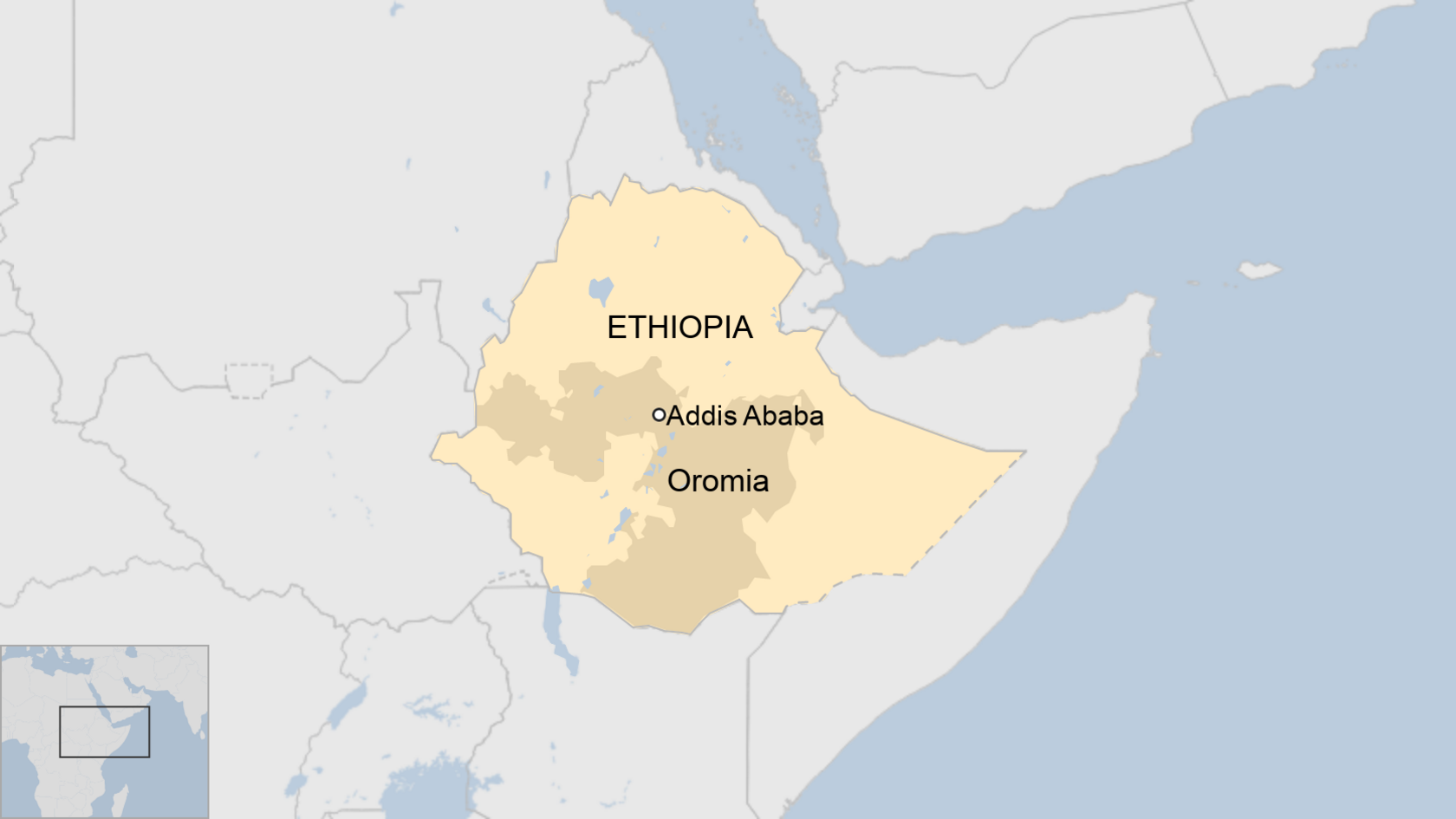
"We are killed by double-edged swords," a resident in western Oromia told BBC Afaan Oromoo, meaning civilians were being killed by both the rebel Oromo Liberation Army (OLA) and the security forces.
For Mr Menychle the prime minister, who won the Nobel Peace Prize in 2019, was too hasty in 2018 in inviting groups like the exiled OLA back without first agreeing the terms of their return, especially for those who were armed.
After the OLA's homecoming, negotiations over disarmament and integration into the security forces broke down, fuelled by distrust over Mr Abiy's vision for Oromia.
And Prof Merera fears these elections will not deliver durable peace and stability - to the detriment of the alphabet generation.
"A country at peace gets good governance and in turn meaningful economic development. Our youths are flocking to Yemen, flocking to South Africa, flocking to Europe and then losing their lives.
"The young people especially want real change."
Why what's happening in Ethiopia matters for Africa
Related topics
- Published11 October 2021
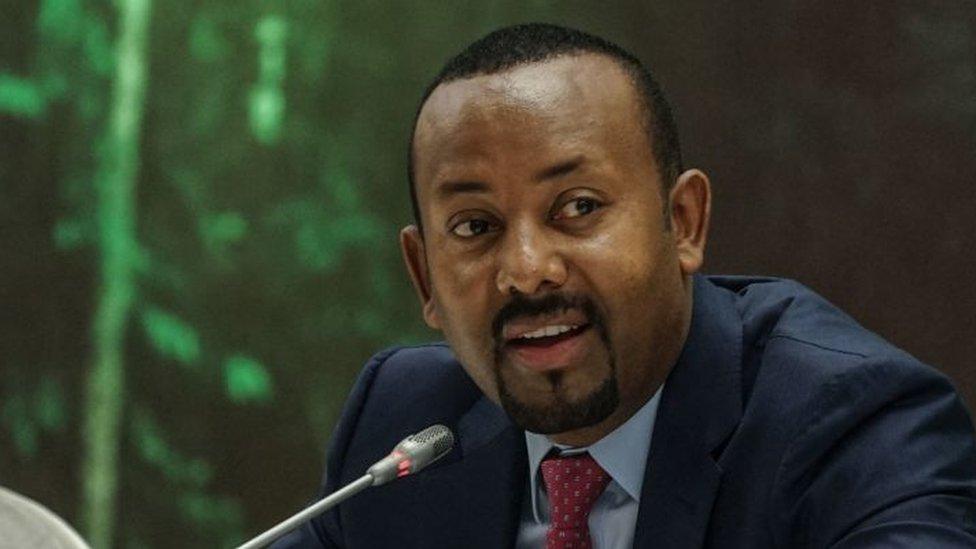
- Published8 June 2021
